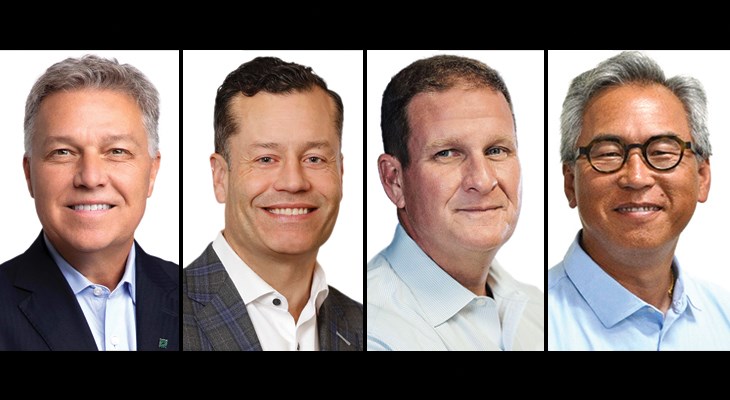Across his 35 years of work, Accel International Holdings Inc. CEO Tony Oh says he found himself just in the past three years saying he doesn't know what he's doing.
"Because the kind of problems that we're trying to solve were not even in the textbooks," Oh said during the Boston Smart Business Dealmakers Conference during the dealmakers M&A roundtable, moderated by Citizens Northeast Regional Executive Jerry Sargent.
Oh says when COVID hit, he lost half the workforce and everyone was scared, so there was the immediate workforce as well as the supply chain issues to deal with. But because his company has a viewpoint that's defined in decades rather than years, there was also the commodity risk to consider.
"What we have is a longer view — or as I call it, we're long on copper — so therefore we don't hedge because over the next 20 years we feel like that's a good place to be, no more than anyone who would invest in luxury goods or commercial real estate has a view on that marketplace," Oh says. "Because if we start to hedge out all the downside, then the margins will start to compress. As many people have called me or my business as a trailing edge business, to garner a 30 percent EBITDA on sales is the way I want to build a business. And if you start to take all the downside risks and take financial engineering to hedge them out, then the margins will continue to erode. So, we have a view on commodity risk based on whatever my views are and whatever Wall Street says, but we really believe that the copper, which is a core component of our product, is got a long $5, $6 future, so we do not hedge. And I think that's very unusual for people in my space."
Citizens Bank M&A Advisory Managing Director David Dunstan says, based on Citizens’ 2023 M&A Outlook, some 94 percent of the respondents, to overcome tough operating environments, passed some or all of the price increases along that they were feeling in their business during the cycle.
"That's been one of the real challenges — whether it's labor, whether it's raw material, commodity prices or otherwise — 94 percent of the respondents have passed those price increases on up the supply chain. That's helped drive some revenue and earnings growth, but the real question is, is that sustainable?"
In that same survey, 65 percent of respondents suggested that their primary driver of growth in 2023 would be M&A versus inorganic growth. Dunstan says with The Federal Reserve raising interest rates trying to reduce inflation, it's hard to get volume growth. Considering companies have topped-out on price increase dynamics, especially as inflation starts to slow, M&A becomes an option to drive growth.
"When you think about that from our standpoint, from your standpoint, if you're looking to be a buyer of businesses or you're considering being a seller, there's certainly an audience for that conversation," Dunstan says. "Whether you're a buyer or seller, having those relationships with the counterparty, developing those relationships, developing that trust absolutely helps get deals done in a tough environment. Banks and the FinCos, the leverage community, are still active. They have not closed their doors. They're being more selective. It's not quite as robust as it was previously but deals can still get done."
Those looking to get leverage from their bank or financial institution should communicate early with them about objectives to make sure the lender is running it up the ladder internally so there's comfort in knowing the capital in is available or in place.
"The bottom line, there's record levels of capital in private equity hands. Banks are still active. And if you want to get something done and you're a well-performing business, there's absolutely opportunity to do that. We expect to continue to see reasonable levels of activity throughout the year better than prior year. I think 2023 will be a better M&A year than 2022 despite all the noise that companies in the broader M&A environment are facing today."
Granite Telecommunications Co-Founder and President, Copley Equity Partners Co-Founder and Boston Celtics Co-Owner Rob Hale says businesses are facing real issues right now — supply chain and labor issues among them. But he says he's more optimistic than others.
"Some of the folks that I listen to, which lead some of the top 20-30 companies in the world that are headquartered here in Massachusetts, they're scared," Hale says. "They're scared about rising interest rates, they're scared about labor shortage, they're scared about people coming back to work — are people actually going to ever come back to the offices again or do we have too much supply, not enough demand for office space. So, these are turbulent times. The way I look at the world is actually, we're always conservative. We always think long-term about the company. We have 20 different companies, maybe $1.1 billion in revenue. We buy things that we think can weather the storm of time. This is a time when we're actually thinking more and more acutely, are there deals to be had?"




